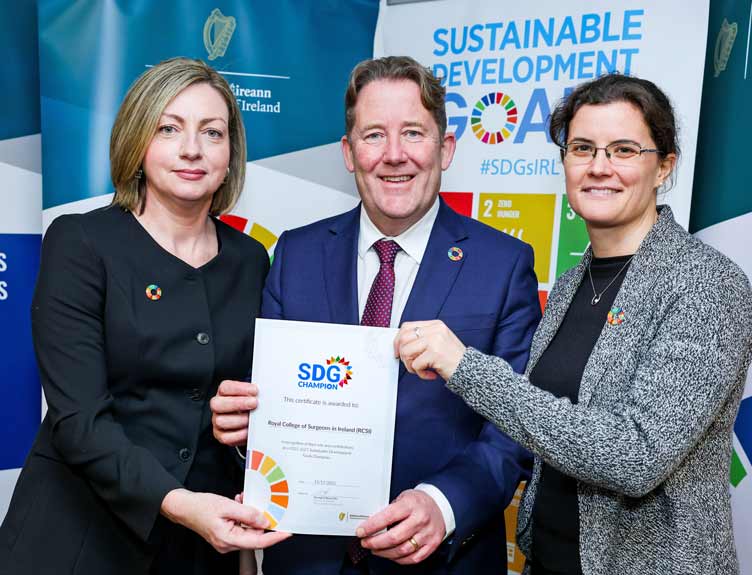RCSI issues warning on antibiotic prescribing to mark World Antibiotics Awareness Week

RCSI (Royal College of Surgeons in Ireland) has joined the HSE's call for collaborative action to keep antibiotics working and stop the spread of antibiotic-resistant superbugs.
Earlier this week on the 11th annual European Antibiotic Awareness Day, the HSE warned that patients are less likely to get better on antibiotics than they were 10 or 20 years ago because of the rise of antibiotic-resistant superbugs. One reason for this is antibiotic misuse.
RCSI Senior Lecturer in Clinical Microbiology Dr Fidelma Fitzpatrick will chair a session today at One Health 2018: A Joint Approach for Healthcare and Veterinary Professionals. The one-day event will host over 300 healthcare and veterinary professionals to learn about prescribing and management of antibiotics in human and animal health.
Dr Fitzpatrick has been instrumental in leading RCSI's antimicrobial resistance awareness initiatives. She has lead previous national antibiotic campaigns and researched antibiotics' effects on infections including sepsis as well as their role in the rise of superbugs.
Speaking ahead of the event, Dr Fitzpatrick said: "Since their discovery 75 years ago, antibiotics have revolutionised medical practice and saved millions of lives. Antibiotic resistance, however, poses a major threat to human health, particularly for severe infections such as sepsis.
"Sepsis is a time-dependent medical emergency. For every one hour that antibiotics are delayed mortality goes up by 7.6% and that increases exponentially. Overprescribing antibiotics can reduce their efficacy against sepsis by creating superbugs.
"It is vital that we apply a rational approach in both human and animal health to antibiotic prescribing that maximises the likelihood of successfully treating infections, while minimising the risk of antibiotic resistance. Antibiotics are a precious medical resource, we simply could not do our job without them. As prescribers, it is up to us to ensure they are used effectively and their efficacy preserved for future generations."
Dr Fitzpatrick's session will focus specifically on how antibiotics affect human health; the other two sessions will focus on animal health and the environment.



